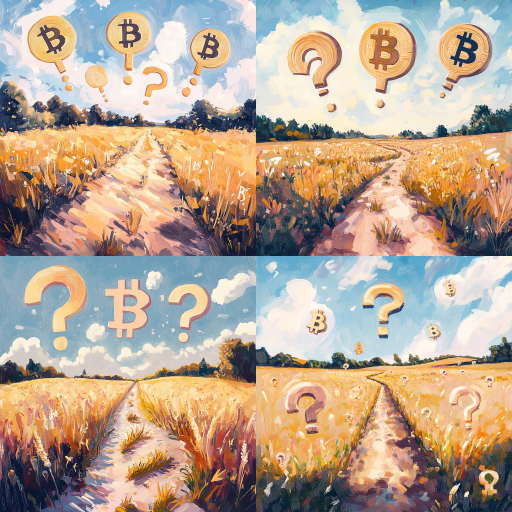Explore the Best AI Image Gallery

5G Technology: Revolutionizing Connectivity and Creativity
The rollout of 5G technology is not just a leap in mobile network speeds; it's a significant shift in how we connect to the world. With 5G, data transfer rates can exceed 10 gigabits per second, making it possible to connect more devices than ever before with minimal latency. This new wave of connectivity has the potential to transform industries, inspire innovations, and change our daily lives in myriad ways. In this blog post, we’ll explore how 5G technology is influencing the creative industry, its potential uses, ethical considerations, and future trends that could shape society as we know it.
Impact on the Creative Industry
One of the most exciting implications of 5G technology is its effect on the creative industry. Artists, designers, filmmakers, and musicians can leverage the increased bandwidth to create and share high-definition content more seamlessly. Here are a few examples of how 5G is changing the landscape
- Enhanced Collaboration: In a 5G world, collaborative tools can operate in real-time without lags. Multiple creators can work on a digital canvas simultaneously, allowing for instant feedback and faster iterations of projects.
- Immersive Experiences: With the ability to download and stream high-quality VR and AR content quickly, artists can create more immersive experiences that engage audiences on a new level. From virtual art galleries to interactive musical performances, the possibilities are limitless.
- Live Events: 5G enables smoother livestreaming, allowing artists to connect with audiences worldwide. Concerts, art shows, and theatrical performances can be broadcast in high-definition, making them more accessible than ever before.
Potential Uses Beyond the Creative Sphere
While the impact on the creative industry is profound, 5G technology has potential uses across various sectors:
- Healthcare: Doctors can perform remote surgeries with precision thanks to real-time data transfer, giving patients access to top-tier specialists regardless of location.
- Smart Cities: 5G enables the development of smart infrastructure, with real-time traffic monitoring, autonomous vehicles, and energy-efficient systems improving urban living conditions.
- Education: Interactive and immersive learning experiences can be provided through AR and VR technologies, making education more engaging and accessible.
Ethical Considerations
The rise of 5G technology is not without its challenges. Ethical considerations must be made as we embrace this new era of connectivity:
- Data Privacy: With more devices connected and capable of generating vast amounts of data, safeguarding privacy will become increasingly complex. Users must ensure that their personal information is protected as companies leverage this data for various purposes.
- Digital Divide: As more high-tech advancements are adopted, the gap between those with access to modern technology and those without may widen. It’s crucial for policymakers to address this digital divide to ensure equal access to the benefits that 5G offers.
- Environmental Impact: The expansion of infrastructure needed for 5G networks raises questions about sustainability. Stakeholders must advocate for environmentally-friendly practices and technologies in building and maintaining networks.
Future Trends
The future of 5G technology is undoubtedly bright, with several trends likely to shape its evolution:
- Integration of AI: As 5G technology and artificial intelligence continue to develop together, their integration could lead to innovative applications that enhance user experiences and optimize network performance.
- Expansion of the Internet of Things (IoT): With 5G reducing latency and allowing for more devices to be connected, the IoT ecosystem will expand, impacting industries like agriculture, manufacturing, and home automation.
- Augmented Reality (AR) and Virtual Reality (VR) Domination: As 5G becomes more prevalent, the use of AR and VR technologies will become commonplace, transforming entertainment, gaming, and even everyday tasks.
Conclusion
5G technology is poised to revolutionize connectivity and creativity across various industries. Its profound implications for real-time collaboration, immersive experiences, and enhanced data applications place it at the forefront of technological advancement. However, as we embrace these opportunities, we must also address the ethical challenges and potential disparities that may arise. By approaching the emerging landscape thoughtfully, we can harness 5G’s transformative power to create a more connected and creative future.




](https://images.ai-img.art/thumbnails/150/99160160c478b524ba92aa139b5b6aef0be4f3368720294c1dc3fe8fc4cbdd90.webp)
](https://images.ai-img.art/thumbnails/150/0349dd8cf310ed10eba1fc74a6f316b8982c8c2bda7e033d1c1e3dc87d849258.webp)





















](https://images.ai-img.art/thumbnails/150/ddfcd3cfcd96dd8d48f26fc2a0406d5daa1e8ff5c17fd91de6502c7107ca08ac.webp)











](https://images.ai-img.art/thumbnails/150/6ac2c201a41e2b8724571746d5719f3f25acc52d87a2077f62dcbae44495108e.webp)
](https://images.ai-img.art/thumbnails/150/c567a1358478083ae41a0cfe6091474ff06e613a84b6c29ca3a26beb2bd76142.webp)
](https://images.ai-img.art/thumbnails/150/d912741b1ab16ff573f976b1d875060fed0db91bf03973bae8f91338eb0863a8.webp)







